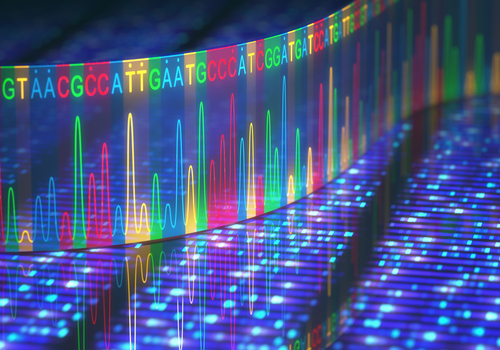Thermo Fisher Develops Test to Screen Genes Linked to Gaucher, Other Hereditary Disorders
Written by |

Thermo Fisher Scientific said it has developed a new test that will allow reproductive health investigators to screen 420 genes for markers of several disorders, including Gaucher disease.
This new approach combines several stand-alone tests into a single assay.
The Human Genome Project has estimated that humans have around 20,000 to 25,000 protein-coding genes. Right now, there are several different tests available for diagnosing genetic diseases. Some are designed to search for mutations in a single gene while others look for variants in a number of genes known to be altered in a specific disorder. Still other tests search all protein-coding genes or even the entire genome of a particular individual for disease markers.
Taking advantage of next-generation sequencing — a faster and less expensive way to sequence DNA than prior strategies — the Ion Torrent CarrierSeq ECS Kit can be used for prenatal, postnatal, in vitro fertilization, and newborn screening analyses. It uses man-made fragments of DNA, which match known genetic markers, to produce several copies of DNA sequences from from a tiny sample of starting material.
The kit screens 420 genes for known genetic markers of 418 hereditary disorders, including those that are usually difficult to sequence. These genes are the GBA gene for Gaucher, SMN1 and SMN2 for spinal muscular atrophy, CYP21A2 for 21-hydroxylase deficient congenital adrenal hyperplasia, and HBA1 and HBA2 for a blood disorder called alpha thalassemia. The assay can identify over 28,000 non-benign genetic variants.
It also has optimized reagents — substances used to carry out laboratory tests — and a customizable Carrier Reporter Software for data analysis and reporting, according to Thermo Fisher.
“In the past, we’ve typically used many different platforms to cover the plethora of tests,” Luis A. Alcaraz, PhD, scientific and lab director at Bioarray, in Spain, and an early access customer, said in a press release. “With CarrierSeq ECS kit, we can consolidate many of the tests which really improves our lab efficiency.”
“In addition, because Carrier Reporter Software is intuitive to use, we can confidently perform various analyses and customize our reporting quickly,” he added.
The good news for patients is that one test will allow clinicians to screen more than 400 genes at once. That’s good news for the researchers, too, the company said.
“We designed the CarrierSeq ECS Kit by tapping into our deep R&D expertise in panel design, algorithm development, assay optimization, and software development,” said Yan Zhang, vice president and general manager of reproductive health at Thermo Fisher.
“The end result is a straightforward, ready-to-use solution that our customers can confidently implement in their lab. The addition of this kit underscores our mission to enable our customers to make the world healthier,” Zhang said.



